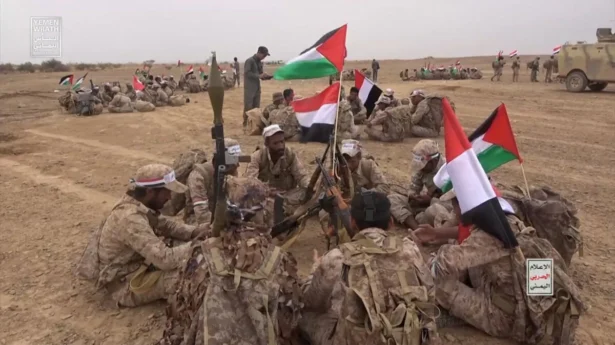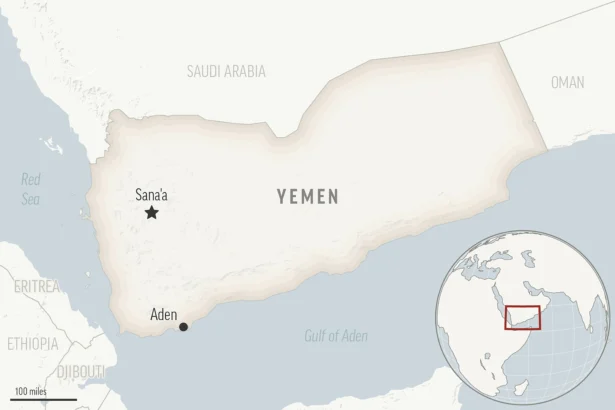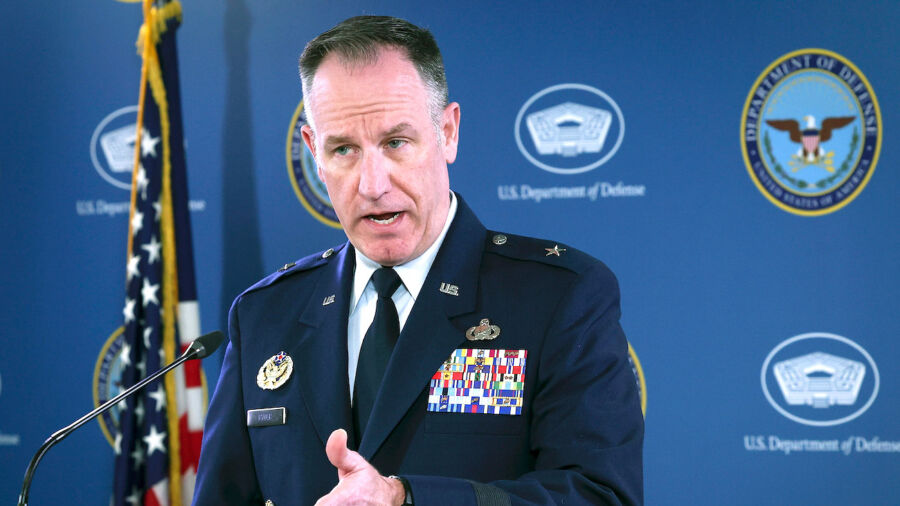More than 20 countries have signed on to join a U.S.-led naval coalition tasked with protecting Red Sea maritime traffic from attacks by Yemen’s Houthi militia, according to the U.S. Defense Department.
“We’ve had over 20 nations now sign on to participate,” Pentagon spokesman Pat Ryder said at a Dec. 21 press briefing.
“The nations that have agreed to publicly discuss their participation, we’ve put those out there,” he told reporters.
“We’ll allow other countries and defer to them to talk about their participation,” Mr. Ryder added.
Earlier this week, U.S. Defense Secretary Lloyd Austin announced the launch of the multinational coalition, dubbed “Operation Prosperity Guardian.”
The operation’s stated aim is to protect Red Sea traffic from attacks by the Shiite Houthi militia, which overran much of Yemen—including the capital Sanaa—in 2014.
In announcing the launch of the coalition, Mr. Austin listed its members as the UK, Canada, France, Italy, the Netherlands, Spain, Norway, Bahrain, and Seychelles.
In his remarks on Dec. 21, Mr. Ryder said Australia and Greece had also “highlighted their participation in this operation.”

Global Trade Disruptions
In recent weeks, the Houthis have staged repeated attacks on vessels traversing the Red Sea, a vital trade route that links the Indian Ocean to the Mediterranean.
An estimated 12 percent of global commercial traffic passes through the Red Sea (by way of Egypt’s Suez Canal), including some 30 percent of all container traffic.
U.S., British, and French naval forces have responded to the Houthi attacks, downing a number of drones and missiles.
According to the Houthi leadership, the attacks are a response to Israel’s ongoing military campaign in the Gaza Strip, which has left thousands of Palestinians dead.
The Houthis have also fired several rockets towards Israel and threatened to target vessels bound for Israeli ports via the Red Sea.
Repeated attacks have forced international shipping companies to reroute much of their cargo, causing massive disruptions to global trade.
“This is an international challenge that demands collective action,” Mr. Austin said when announcing the U.S.-led operation.
He also urged other countries to join the coalition to counter what he called “reckless Houthi actions.”
The Houthis are closely tied to Iran, the region’s leading Shiite power and a longstanding foe of both Israel and the United States.
Iran denies Western claims that it directs the group’s actions or provides it with material support.
Nevertheless, Tehran has warned that countries that join the U.S.-led coalition would be viewed as allies of Israel.
“Any country joining the American coalition … is a direct participant in the killing of children by the Zionist regime [Israel],” Ali Shamkhani, a top aide to Iran’s supreme leader, said in a social-media post.
Houthi defense chief Mohammed al-Atifi, for his part, warned that the Red Sea would become the coalition’s “graveyard” if the naval alliance targeted Yemen.

‘Coalition of the Willing’
According to Mr. Ryder, the Pentagon spokesman, members of the naval coalition will contribute whatever they can.
“In some cases, that will include vessels. In other cases, it could include staff or other types of support,” he said, describing it as a “coalition of the willing.”
Notably, however, several of Washington’s Arab allies do not appear to be taking part in the operation.
These include Saudi Arabia and the United Arab Emirates (UAE), both of which fought the Houthis—for several years—after the group assumed power in Yemen.
But last year, Saudi officials entered direct peace talks with the Houthis, ushering in a period of relative calm in the Arabian Peninsula.
What’s more, in February of this year, Riyadh signed a landmark agreement with Tehran—the Houthis’ main backer—ending years of mutual hostility.
Meanwhile, both Riyadh and Abu Dhabi remain tight-lipped regarding their apparent non-participation in the U.S.-led coalition.
However, many observers believe the two Arab Gulf States don’t want to see a resumption of fighting in Yemen that could derail their nascent détente with Iran.
Nor do they want to be seen as allies of Israel, even indirectly, which remains unpopular across the Arab and Muslim world.
According to Gerald Feierstein, a former U.S. ambassador to Yemen, Washington is “probably not delighted” that the two countries have not joined the coalition.
But the White House “would have to be pretty blind, deaf, and dumb not to understand what was going on and be surprised by the response on the Saudi or Emirati side,” Mr. Feierstein said in recent remarks to Reuters.
Asked directly about the two countries’ lack of participation, John Kirby, White House national security spokesman, said: “I’ll let every nation who is a member, whether they want to acknowledge it or not, speak for themselves.”
Speaking at a Dec. 19 press briefing, Mr. Kirby added: “It’s a coalition of the willing.”
Reuters contributed to this report.
From The Epoch Times

